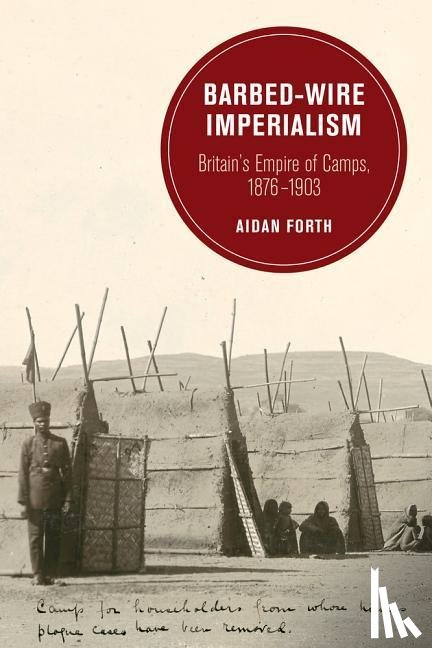Omschrijving
"This book is highly original, timely, and overdue in the best sense of that word. No one has undertaken to show how and why the concentration camp as a form and as an ideology emerged as a constituent part of imperial governance. As with all good histories that begin by examining phenomena cloaked in 'state of exception' arguments, this one reveals the commonplace character of camps in several, often linked, spaces of imperial dominion and settlement."--Antoinette Burton, author of The Trouble with Empire: Challenges to Modern British Imperialism "This important book foregrounds the importance of violence, confinement, and coercion in Britain's Victorian empire. Through a meticulously detailed, comparative study, Aidan Forth restores to history the lives and worlds of the ten million colonized subjects who were interned in famine, plague, and concentration camps across British India and South Africa. Turning on the concept of the 'disaster imperialism' of famine, plague, and war, Barbed-Wire Imperialism confronts key concerns of global and imperial history: transfers of power and knowledge, trans-imperial connections, governance and governmentality, and liberalism and empire. It also creates a useable past that is of vital relevance in the world today."--Clare Anderson, author of Subaltern Lives: Biographies of Colonialism in the Indian Ocean World, 1790-1920 "Barbed-Wire Imperialism is a model study of biopolitical governance, but it goes far beyond the usual case studies of biopolitical institutions to make connections between metropolitan workhouse discipline, India's famine camps, and Boer War concentration camps. Well written and compelling, bold in scope yet nuanced in analysis, Forth's study changes our understanding of the British Empire."--Anna Clark, author of Alternative Histories of the Self: A Cultural History of Sexuality and Secrets "Aidan Forth's study takes us further in the pursuit of understanding the history of the British camps of famine, plague, and the Anglo-Boer War (Britain's nineteenth-century 'empire of camps'), and in a fascinating way opens up new avenues of research on a sensitive topic.--Fransjohan Pretorius, author of A to Z of the Anglo-Boer War "Responses to war, plague, and famine come under critical scrutiny in Aidan Forth's insightful and innovative investigation of civilian confinement camps in high imperial India and South Africa. In tracing crucial lines of connectivity across the Indian Ocean, Forth sheds fresh light on imperial biopolitics, state coercion and sanitary expertise, the control of 'dangerous bodies, ' and suffering and colonial subjects. At the same time, by showing the constraints on imperial excess and questioning the presumed legacies of imperial concentration camps, he revalidates the concept of 'liberal empire.' Assiduous research and attention to detail allied to recognition of global trends make this empire history at its most compelling."--David Arnold, Professor Emeritus University of Warwick


